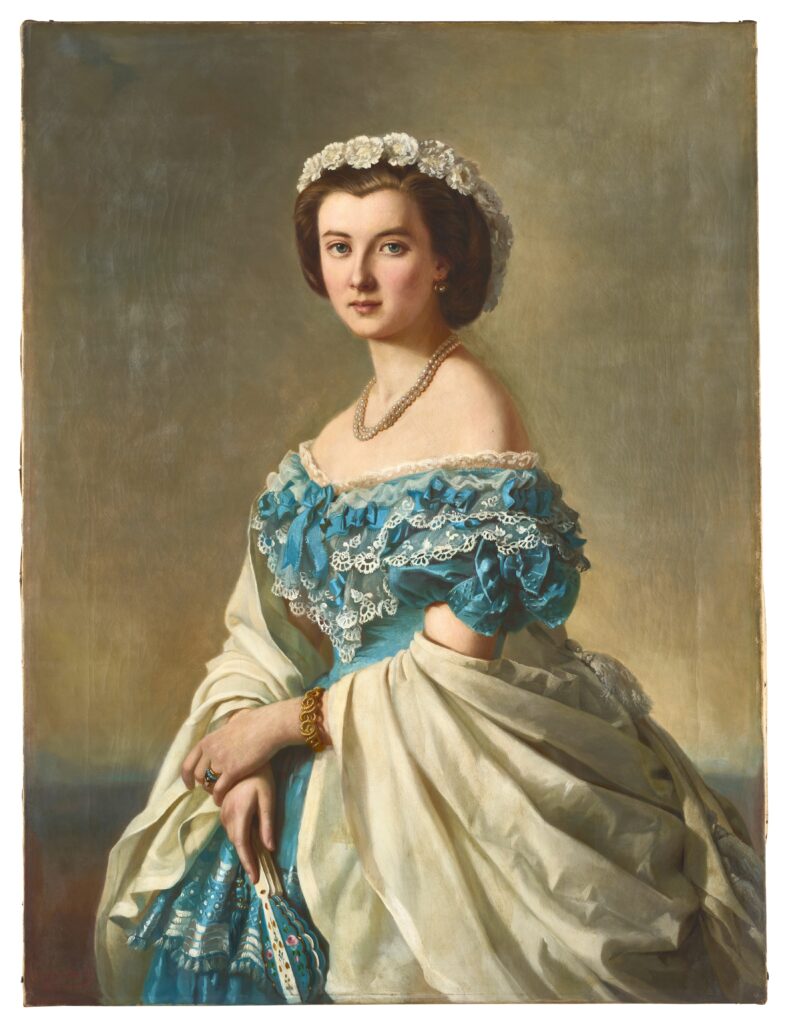
Some names have that little bit extra, the nobiliary particle – a preposition or article in a name. The image above shows Alexandra, Freifrau von und zu Bodman, born Alexandra Offensandt von Berckholtz, who provides a good example of the form. How do indexers deal with names like this?
Firstly, W. Stephen Gilbert sets out the issues with some examples:
If you were engaged in a conversation about cinema and you referred to someone whose name sounded like Nero, your interlocutor might well be puzzled. Is this one of the 17 extant movies or 11 television episodes entitled Nero, or one of the many and various characters called Nero in fiction, animation, comic books or video? However, if you preceded the name with ‘De’, all humanity would know exactly who you meant. What’s more, all humanity would agree that his name is always rendered De Niro and never de Niro.
This looks like an unarguable indexing case. The only correct version must be:
De Niro, Robert
Nobody needs to bother with cross-referencing from
Niro, Robert De
(and certainly not Niro, Robert de) because no one would look for him under N.
Would that all such names were so straightforward. What is technically known as the nobiliary particle – a preposition or article in a name – causes great uncertainty and quite a bit of dispute among indexers. Should a ‘von’ or a ‘la’ constitute the filing element? Is it always necessary to cross-refer, especially to a version that is evidently not in use? Should the prefix be capitalised if it is the filing element, even when it ordinarily appears in lower case? And is it acceptable to wink at the particle in the sort, even if it is the filing element?
Some surnames have happily solved the problem for us by segueing the prefix into the body of the surname, thus: Leonardo DiCaprio, Cecil B and Agnes DeMille, Eugène Delacroix, E M Delafield and so on. Making life easy, they are always welcome in our texts. Elsewhere, all is in (potential) dispute.
For instance, usual advice is that German prefixes should follow the forename (and hence reside at the end of the entry). Wernher von Braun may have been born in Germany and spent his first 33 years there, but his subsequent career and fame proceeded in the United States and he has been known to the world as von Braun rather than Braun. It would surely be a futile exercise to file him under B.
Maria and Georg von Trapp, and their children, present greater complexity. No doubt their widest fame derives from the movie of the Rodgers & Hammerstein stage musical The Sound of Music wherein the family is consistently referred to as von Trapp. But Maria’s American-published memoir on which the show is based is entitled The Story of the Trapp Family Singers and credited to Maria Augusta Trapp. There can be no recourse but to index family members under both Trapp, von and von Trapp, taking whichever is suitable to the context as the primary entry.
Just as De Niro is always correctly recorded with a capital D, so John le Carré always appears with a lower case l, save when the whole of his name is capitalised. As no one refers to him as Carré, it seems perverse to think of indexing him as a C and impertinent to capitalise the l just because it begins the entry.
Similarly, it’s hard to imagine that Gaulle, Charles de would be a logical entry, and indeed in Julian Jackson’s biography he is entered as
de Gaulle, Charles
and isn’t that what we would all look for in the index? The long and varied history of disseminated names tends to suggest that no rule covers every instance. The indexer will have to weigh up the alternatives and decide, considering reader expectations and deploying cross-references if space allows.
Ann Hudson, indexer and former Training Course director, adds:
Practice for indexing names with articles or prepositions varies among countries. For example, the French writer Simone de Beauvoir should be indexed under B but the Italian opera librettist Lorenzo Da Ponte under D. And someone born and bred in an English-speaking country is conventionally indexed under the prefix, even if their surname is of foreign origin: for example, no-one would look anywhere but at D for the poet Walter de la Mare, who though partly of French descent was born, lived and died in England.
As Stephen rightly says, indexers should be guided by reader expectations. But can we always tell what these are? His example of Wernher von Braun is a case in point: an aerospace engineer born in Germany in 1912, he moved to the United States after World War II. As a well-known person he is easily checkable online, and as the major part of his career was in the US he is most sensibly indexed at V, and not at B as he would be if he had stayed in Germany. But things are not always so clear-cut. Lorenzo Da Ponte, mentioned above, turns out to have spent his last 30 years or so in the United States – news to me, though as he is Italian he goes under D either way.
But what if the person concerned is not well known and the text gives no clue to nationality or domicile? Time and budgets are unlikely to allow researching their origins and life history; one can hedge one’s bets by picking one alternative and cross-referring from the other, but there may not be room if space is tight. Following the usage of the text can be a clue – does it refer, for example, to the photographer Eric de Maré as ‘Maré’ or ‘de Maré’? Authors sometimes get this wrong, though, and a quick online search may better indicate usual practice.
Reader expectations may change over the years. I can’t forgive Dan Brown for calling his book The Da Vinci Code, because poor Leonardo da Vinci, who came from the small Italian town of Vinci and was known to generations of art historians as just ‘Leonardo’, is now more likely to be looked for under D (or possibly V). So indexers have to allow for this, and at least make a cross-reference from ‘Da Vinci’ to the ‘correct’ entry at L – however much this may exasperate.
For anyone puzzling over the indexing of names, the collection of ‘Centrepieces’ from The Indexer are free to access, and include a range of articles about names for many different nationalities.


